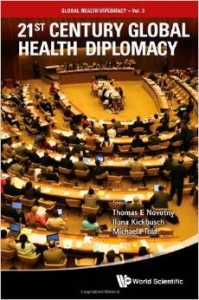-83%
Global Health Diplomacy: A Bridge between Health and International Relations
Global health diplomacy, an emerging discipline, empowers nations to navigate the intricate interplay of health and international affairs. Its foundation rests upon acknowledging the profound influence of historical, political, social, economic, and cultural contexts on health interventions.
Globalization and Interdependence
Globalization has fostered interconnectedness and interdependence among nations. This interconnectedness has profound implications for health, as it allows for the rapid spread of infectious diseases and the sharing of best practices. Global health diplomacy serves as a platform to coordinate efforts and ensure equitable access to health services, regardless of geopolitical boundaries.
Social Justice and Equity
Global health diplomacy champions social justice and equity. It strives to address health disparities and ensure that all populations have access to essential healthcare. By fostering international collaboration, it promotes knowledge exchange and the sharing of resources to strengthen health systems in underserved regions.
Enlightened Self-Interest
National self-interest plays a crucial role in global health diplomacy. Nations recognize the importance of investing in global health to protect their own populations from health threats. By mitigating global disease outbreaks and promoting health equity, global health diplomacy safeguards national security and economic stability.
Skills for Success
While essential to the success of international health collaboration, the skills required for global health diplomacy are often absent from traditional health sciences and Foreign Service curricula. These skills include:
- Cultural sensitivity and understanding
- Negotiation and conflict resolution
- Intercultural communication
- Adaptive thinking
- Policy analysis
Pathways to Progress
Global health diplomacy offers opportunities to advance global governance and foster positive international relations. It can serve as:
- Conflict Mitigation: By addressing health disparities and promoting cooperation, global health diplomacy can reduce tensions between nations and prevent conflict.
- Health Promotion: It provides a framework for sharing knowledge and resources to improve health outcomes worldwide.
- Peacebuilding: Health interventions can foster trust and reconciliation, promoting peace and stability in post-conflict regions.
- Economic Growth: Investment in health leads to increased productivity and economic growth, benefiting both developed and developing nations.
- Multinational Cooperation: Global health diplomacy facilitates collaboration among nations, fostering a spirit of solidarity and mutual support.
Target Audience
Global health diplomacy is a critical field of study for:
- Graduate students pursuing master’s and doctoral degrees in global health
- Participants in short courses on health diplomacy
- Professionals seeking to enhance their understanding of the interplay between health and international relations









Reviews
Clear filtersThere are no reviews yet.